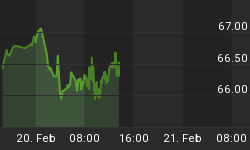We at Casey Research are often asked, "What books have had the biggest impact on your investing philosophy?" To find out, we took a quick, informal poll of our most prominent economists, editors, and analysts to see which books helped form their unique economic outlooks. The books range from mainstays of the political economy, such as Thomas Sowell's A Conflict of Visions, to classics from antiquity, including Plato's The Republic. However, genres often overlooked – like our founder Doug Casey's longtime interest in science fiction – should give current and prospective subscribers a glimpse into the diverse influences that drive our publications.
Doug Casey, best-selling author and chairman of Casey Research, sat down with our Chief Metals & Mining Investment Strategist Louis James to discuss his favorite books, particularly his penchant for science fiction (or as Doug calls it, "speculative fiction"). Here are a few of his favorite books from that interview:
- Stranger in a Strange Land by Robert A. Heinlein
- 2001: A Space Odyssey by Arthur C. Clarke
- Ender's Game by Orson Scott Card
- The Foundation Series by Isaac Asmiov
- Atlas Shrugged by Ayn Rand
- Earth by David Brin
- The Probability Broach by L. Neil Smith
- Dragon's Egg by Robert Forward
- The Voyage of the Space Beagle by A. E. van Vogt
Bud Conrad, our chief economist and author of the new book Profiting from the World's Economic Crisis, sent over his favorite books for untangling the world's complex economic systems. Bud believes that these books will help readers understand his big-picture approach to investing and provide a theoretical basis for why we can't trust governments to maintain the value of their respective currencies:
- The Dollar Crisis by Richard Duncan
- This Time Is Different by Carment Reianhart and Kenneth Rogoff
- Strategic Investing by Doug Casey
- The Economics of Inflation – A Study of Currency Depreciation in Post War Germany by Constantino Bresciani-Turroni
- Twilight in the Desert by Matt Simmons
- The Party's Over by Richard Heinberg
- Confessions of an Economic Hitman by John Perkins
- The Alchemy of Finance by George Soros
Terry Coxon, Casey Research senior economist and author of Keep What You Earn, only had one book to recommend: A Conflict of Visions by American free-market economist Thomas Sowell; it explores the nature of overarching differences in political ideologies.
Doug Hornig, author and senior editor at Casey Research, recommended two of his favorite eye-popping books that explore the reasons why poor countries remain poor (and rich countries remain rich):
- The Mystery of Capital by Hernando de Soto
- Wealth of Nations by Adam Smith
Jeff Clark, editor of BIG GOLD (our newsletter focused on large-cap gold mining stocks and physical gold ownership), points out two books he thinks any subscriber to his service (or anyone who owns gold or gold mining shares) should read:
- Mining Explained by The Northern Miner Magazine
- Guide to Investing in Gold & Silver by Mike Maloney
Alex Daley, chief technology investment strategist and senior editor of Casey Extraordinary Technology (our publication focused on emerging opportunities in the technology sector), only had one book to suggest: The Change Function by Pip Coburn. The book explores the reasons why people adopt new technologies and, on a broader scale, how one company is more successful than others at getting people to adopt its products.
Vedran Vuk, Casey Research senior analyst and frequent contributor to Casey Daily Dispatch, our newsletter that sends out free daily updates regarding changes in the macro economy and sector-specific news, had one book to recommend: Frédéric Bastiat's seminal work on classical liberalism, The Law. He also gave two thumbs up to every book on Chris Wood's list.
Kevin Brekke, editor of the all-new World Money Analyst and longtime Casey Research contributor, sent over a few of his favorite books. Although few (okay, none) have to do with investing, Kevin believes that the best way to become a successful investor is to understand one's relationship to the surrounding environment, which means understanding philosophy, sociology, and psychology:
- Freedom From the Known by Jiddu Krishnamurti
- Anti-Intellectualism in American Life by Richard Hofstadter
- We The Living by Ayn Rand
- Leviathan by Thomas Hobbes
- The Prince by Niccolo Machiavelli
- The Republic by Plato
Chris Wood, lead analyst and contributing editor to Casey Extraordinary Technology, offered a wide array of books, ranging from the intellectually challenging, such as Human Action by Ludwig von Mises to more straightforward (but still challenging) explorations of everyday microeconomic forces, like Walter Block's Defending the Undefendable. His other recommendations include:
- The Free Market Reader: Essays in the Economics of Liberty, edited by Lew Rockwell
- The Ethics of Liberty by Murray Rothbard
- Man, Economy, and State by Murray Rothbard
Dan Steinhart, co-editor of The Casey Report, our flagship publication dedicated to identifying big-picture trends and investment opportunities, followed Chris' lead and recommended books that may serve as catalysts for people to align their financial lives in accordance with current big-picture trends in the economy:
- The Creature from Jekyll Island by G. Edward Griffin
- Fiat Money Inflation in France by Andrew Dickson White
- Economics in One Lesson by Henry Hazlitt
- America's Great Depression by Murray Rothbard
This list is only a fraction of the books our team recommended, but it should give current and prospective subscribers a look into the types of authors and ideas that influence Casey Research publications.
A well-read individual is much more likely to successfully avoid dodgy investment claims and ideas. Download this free report to see if you have fallen for any of the top ten misleading ETFs.
















